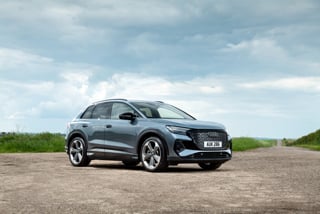Audi and BMW have the highest loyalty among customers, according to a new study into car buyers’ brand perceptions.
Both German brands achieve the highest rates of customer loyalty with 68% for Audi and 65% respectively, according to Trend Tracker.
Ford is the third best supported brand in the survey, followed by Mercedes-Benz and Land Rover/Range Rover.
Robert Macnab, Trend Tracker’s lead analyst, , said: “There’s a clear message: premium brand vehicles are maintaining greater customer loyalty in this difficult economic climate.”
The Trend Tracker study, UK Car Buyer Brand Perceptions 2011, has been drawn from a nationally representative sample of 12,000 motorists, all of whom were interviewed face-to-face by Lake Research.
The study shows that 16% of owners of premium brand cars are considering a volume brand for their next purchase, with Volkswagen, Mini and Toyota the most likely beneficiaries of this shift.
Macnab said: “This may reflect a need for affluent car buyers to make savings in the current state of the UK economy.
“It certainly indicates that large numbers of people are intending to spend less than they have done on a new car in more prosperous times.”
However, 68% of all current owners of premium brand cars do intend to buy the same or another premium brand.
In many cases it appears that the perceived value and status of the most sought-after vehicles are still managing to outweigh often higher running costs.
The main benefits car buyers associate with premium brand cars are style, design, quality and reliability, but running cost economy is the next most important criterion for buyers considering a premium brand.
Volume products including Ford, Vauxhall, Volkswagen, Peugeot and Toyota, are mainly chosen for their economy, practicality and affordability.
But some volume brands are making up ground on their more costly cousins by building a reputation for high levels of quality and reliability.
Volkswagen and Toyota in particular have made significant strides in this area of public perception but are less appreciated for their style and design, while Mini is seen as being “chic” but affordable.
The premium brands’ main perceived weakness is being expensive to buy and to run.
Macnab said: “At whichever end of the market they are buying, the public is intent on finding value for money.
“With this in mind it is interesting to note BMW, Audi and Mercedes-Benz have made significant advances in producing more fuel-efficient engines and compact models that compete directly with volume brand alternatives.”
Premium brand demographics
The Trend Tracker study shows that premium brand car buyers are typically affluent 25-44 year olds and older affluent retired people living in London, the South East, East Anglia and the Midlands.
During the easy credit period of the economic boom before the financial crisis of 2008, there had been an increase in premium brand purchases among a slightly less affluent but broader base of car buyers, demonstrated by the rising market shares of Audi and BMW.
The Trend Tracker research shows that many people still aspire to own a premium car brand with BMW and Audi consistently appearing in car buyers’ top five preferred brands, but many end up buying a volume brand for budgetary reasons.
Among all car buyers, being economical to run (38%), practicality and size (36%) followed by affordability and value for money (36%) are currently the most important car purchase criteria.


















Login to comment
Comments
No comments have been made yet.